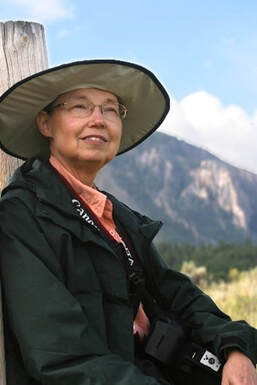 Kay Slama* Kay Slama* Kay Slama, Ph.D., clinical psychologist and LWV UMRR Board member Are you anxious about our climate? Think about it: We’re experiencing more intense heat periods. That leads to increasing droughts and to giant forest fires. The heat is causing more water to evaporate into the atmosphere, creating more severe storms and floods. To stave off the most catastrophic consequences of climate change, the average child born today must emit about eight times less carbon dioxide (CO2) than their grandparents. ARE YOU FEELING ANXIOUS YET? If not, read the national and international climate reports giving us only 8-10 years to make important changes to head off disastrous climate change. Glaciers and permafrost are melting, ocean currents are slowing, and oceans are rising. Millions of people are responding to the effects of climate change by migrating. The last time carbon dioxide levels were this high was 3 million years ago. 250,000 deaths a year from climate change is a conservative estimate. NOW ARE YOU FEELING ANXIOUS? If you are feeling nervous, relax; you’re normal. It shows that you care about our earth and its living things, including people.
Climate anxiety is also known as eco-anxiety, defined as “chronic fear of environmental doom” by the American Psychological Association, which is concerned that climate anxiety is increasing the rates of depressive and anxiety disorders. Nearly a year ago, an American Psychiatric Association poll found that 55% of Americans are somewhat or extremely anxious about the impact of climate change on their own mental health. Some degree of climate anxiety is good. In fact, some substitute the term “eco-awareness.” Some anxiety can galvanize us into taking important actions. But past a certain point, climate anxiety’s effects become increasingly negative, and this is where some substitute the term “environmental trauma.” Living with doom and gloom is very ineffective. We become depressed and hopeless, thinking we can’t do anything about what is happening to our planet. We avoid thinking about climate change (even deny it) or feel immobilized, and we don’t join with our fellow earthlings to change what we can. The climate crisis can create apathy and burnout. A report notes that “the ability to process information and make decisions without being disabled by extreme emotional responses is threatened by climate change.” Fear can cause paralysis. People who are anxious tend to be avoidant, or they shut down and don’t engage. Susan J. Ray wrote A Field Guide to Climate Anxiety: How to Keep Your Cool on a Warming Planet (2020). She said that it’s “a systemic thing that we need all hands on deck to address. We need all the talents, we need all the skills from the artists, to the creative types, to the imagination people, to the children’s book writers, to the teachers to the parents,” in addition to scientists, engineers, and politicians. All of us can contribute in multiple ways to managing our climate. To ease this feeling of anxiety, turn it around. “Instead of focusing on the fear, you should instead focus on what you want to do,” psychologist Janet Swim said. Ray noted that the climate crisis if affecting every part of our lives. She said that we must change how infrastructure works, how transportation works, how we build our homes, how we live on this planet and walk on this Earth. It even affects whether we have children. Ray said that some young adults are choosing “not to have children because they don’t think their children will have a livable future.” So what can we do to deal with our anxiety about the earth’s climate? We can help ourselves feel more of a sense of control by choosing among these approaches:
Want to convince others that climate change is real? Telling them what to do is likely to raise their resistance or aversion to thinking about it—people don’t like that. Instead, just mention, in the course of general conversation, something you are doing for the climate. You can gently ask what their concerns are for their children and grandchildren’s world as climate changes. But hammering and nagging tend to be counterproductive. Be patient with others as you do what you can for the climate. If you are anxious about climate, you are not alone. One of the best ways to cope is to find groups that raise awareness or work to fight climate change. keep the core values of courage, flexibility, resilience, and compassion. Working with others who also want to protect the environment can increase your sense of connection and ease the sensation of struggling alone. That emotional and social support can help boost resilience, increasing your optimism and hope. *Kay Slama, from the Willmar MN chapter of LWV, grew up on a family farm in ND. She is a clinical psychologist who is retired from practice and from adjunct faculty positions with the UM Medical School Dept. of Psychiatry and St. Mary’s University’s doctoral counseling program. She is active with the Sierra Club and the Willmar Area Climate Action Group, and she serves as her church Social Justice Co-Chair. Kay’s most recent professional submission is “Women and the Existential Climate Crisis”, provisionally accepted by The Humanistic Psychologist. She says, “I volunteer for climate and other environmental issues because so much is at stake: Our water, land, soil, health, and the future of our children and the Earth.” She enjoys racket sports, biking, canoeing, reading, music, and gardening, and she spends several months each year in outdoor travel, birding, and photography.
0 Comments
Leave a Reply. |
| LWV Upper Mississippi River Region | UMRR blog |
 RSS Feed
RSS Feed